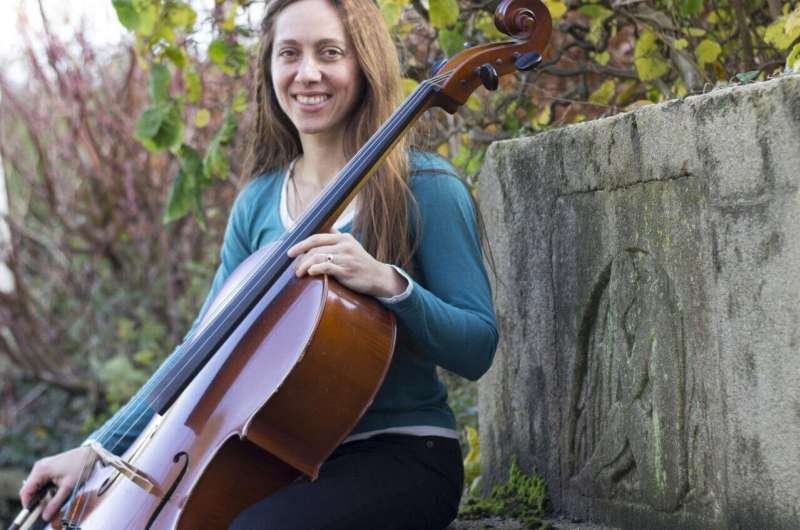New study of goals and beliefs during COVID-19 lockdown shows people still care

A new study from the University of Chichester has shed light on how people coped psychologically with the sudden and life-changing disruption caused by COVID-19.
This new publication, by Chichester's Professor Laura Ritchie and Ph.D. candidate Benjamin Sharpe, in collaboration with Professor Daniel Cervone of the University of Illinois at Chicago, provides a unique snapshot into people's understanding of their goals and self-beliefs amidst a shared, unexpected alteration of the daily landscape during lockdown.
Ritchie and colleagues collected their study data during the start of the initial lockdown period in March 2020, a time when people were first told stay home.
To study people's attitudes toward their goals as well as their beliefs in their capabilities for accomplishing them (self-efficacy), the research team devised novel methods that combined traditional survey items with open-ended narrative reports that allowed people to describe their pandemic-era experiences in their own words.
Their findings reveal, as expected, that the pandemic lowered self-efficacy beliefs. When the lockdown introduced impediments to the pursuit of daily projects, people became less confident in accomplishing them.
Yet the findings also revealed an unexpected result.
Despite the life disruptions and lowering of confidence, many people still cared deeply about pursuing their goals. Even though over two-thirds of people believed they could no longer accomplish their goal now that current events had unfolded, yet they still cared about it.
Those who continued to pursue their goals exhibited a range of creative strategies, demonstrating their tenacity to find a way in the midst of the restrictions and uncertain times.
Co-author Prof Cervone said: "A recurrent finding from psychological science in recent years is relevant here. People often display surprising resilience in the face of life disruptions. Our new findings reveal one potential source of resilience during the early COVID-19 lockdown: the tenacious, strategically-creative pursuit of meaning personal projects—a pursuit that, for many people, continuous even while the individual expresses some doubt about their ability fully to reach their original aims."
Professor Brian R Little, Director of the Social Ecology Research Group Cambridge University and world-renowned expert in the study of personal projects and well-being, describes this new publication by Ritchie, Cervone, and Sharpe as "a creative and important study of how people pursue their projects under the challenging conditions of COVID-19."
He added: "The convergence of quantitative and qualitative results is very encouraging for research on efficacy in project pursuit. The authors have documented a dramatic drop in efficacy on personal projects that had been initiated before the epidemic compared with their current lock-down status."
Author Professor Laura Ritchie, a Professor of Learning and Teaching at the University of Chichester, said: "We were very pleased to successfully carry out this cross-continental collaboration within the narrow window for data collection to meet the deadline for this special call, especially considering we too were in lockdown."
Benjamin Sharpe, research assistant to Professor Ritchie, added: "This has been an exciting project and I have been keen to follow the trend to increase transparency in research through following open science practices. Our dataset is fully accessible."
A potential benefit of the approach of Ritchie, Cervone, and Sharpe is that it yields a 'library' of participant-provided pandemic-related coping strategies. These self-reported strategies involved aspects of emotional and problem-focused coping, involving active planning and engaging with metacognitive strategies.
Professor Little concluded: "The study provides an elegant demonstration that in the age of COVID-19, even projects that people have had to put on hold may sustain meaning in their radically upended lives. It deserves to be read widely."
More information: Laura Ritchie et al, Goals and Self-Efficacy Beliefs During the Initial COVID-19 Lockdown: A Mixed Methods Analysis, Frontiers in Psychology (2021). DOI: 10.3389/fpsyg.2020.559114



















